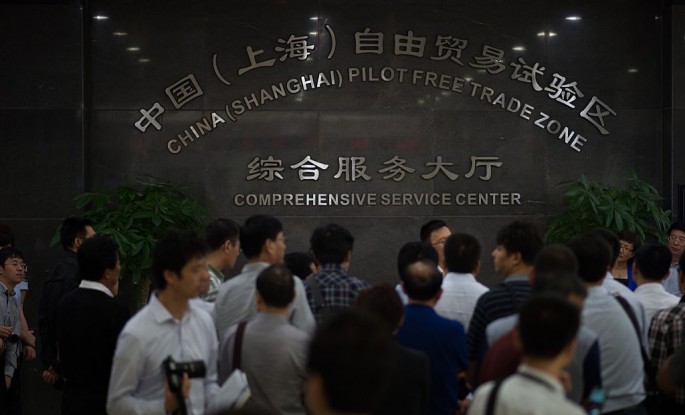Chinese authorities are set to test a trial program, starting in October, with the release of a unified work permit for foreigners, which will replace the existing system where two government agencies have issuing authority, China Daily reported.
The plan is expected to ease the burden for highly-skilled expats who are seeking employment in Shanghai, the report said.
The trial program was part of a government notice released recently which aims to extend measures to attract more foreign skilled workers in a bid to hasten the development of its scientific and technological innovation hub.
Currently, the certificate that qualifies individuals to work in China is issued by the State Administration of Foreign Affairs while work licenses that authorize others are issued by the local labor bureaus.
Under the pilot program, skilled workers who have been recruited to work in Shanghai will only have to complete an online application and do not need to submit applications before entering the country.
To make it even more convenient, expats who have applied at least twice for a one-year work permit can now qualify to have a five-year work permit.
At least 20 measures aimed at helping foreign skilled workers were released in July 2015, including 12 released by the Exit-Entry Administration Bureau of the Shanghai Public Security Bureau. The resident permit for overseas workers was also extended to 10 years, further opening Shanghai to the world.
"We retain the core spirit of creating an environment for talent to grow and explore innovation, in order to shape the city into a cluster of global innovative talent by 2020," Chen Hao, deputy director of the organization department of the municipal government, said.
In addition, the staff of foreign work teams may also apply for permanent residence directly under the more open overseas talent policy.
The administrations of the China (Shanghai) Pilot Free Trade Zone and Zhangjiang National Innovation Demonstration Zone may recommend high-level workers that qualify for permanent residency.
New graduates from world-class universities who are recruited by investment companies, regional company headquarters, and research and design centers registered in the two zones may also work in Shanghai.
Here are the essential points of the trial program:
1. To help skilled expats save time, the current two permits will be replaced by one work permit.
2. Expats who have obtained a work permit at least twice in the past will be issued five-year work permit.
3. Permanent resident permit holders are qualified to apply for an overseas talent residence permit directly.
4. New graduates from world-class universities recruited by foreign-related companies registered in the China (Shanghai) Pilot Free Trade Zone and Zhangjiang National Innovation Demonstration Zone can work in Shanghai.
5. After graduation, international students can apply to work at startup businesses in Shanghai.
6. An overseas talent resident permit also includes a property tax exemption.
7. Enterprises working on scientific research with outstanding performance can recruit postdoctoral researchers independently overseas.
8. Chinese human resources companies are also encouraged to set up overseas offices to share resources and connections with foreign counterparts to spur talent mobility.



























